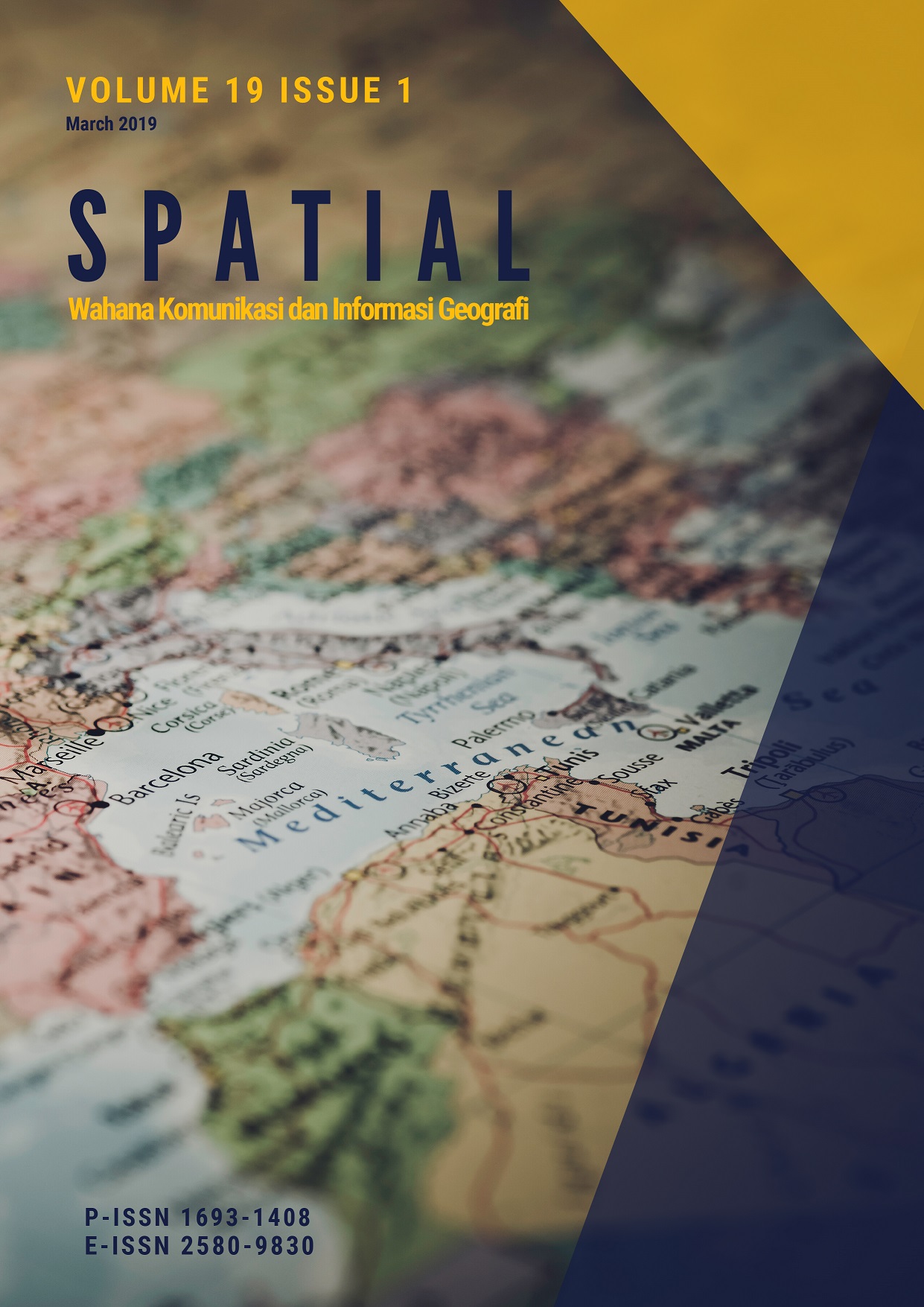The Influence of Project-Based Learning (PJBL) Model on Spatial Thinking Ability in Class SMA PGRI 2 Palembang
DOI:
https://doi.org/10.21009/spatial.191.06Keywords:
Learning Model, Project Based Learning, Spatial Thinking Ability Geography, Geography, Spatial ThinkingAbstract
One of the goals of learning geography is to give students the ability to think spatially. But based on observations in the field, it shows that students' spatial thinking skills have not shown maximum results. This study aims to determine the effect of the Project Based Learning (PJBL) learning model on spatial thinking skills in class X geography subjects at SMA PGRI 2 Palembang. To determine the effect of Project Based Learning (PJBL) on spatial thinking skills, the researcher used the Experimental method.
Based on the results of data analysis and discussion on the effect of Project Based Learning (PJBL) learning models on spatial thinking skills in class X geography subjects at SMA PGRI 2 Palembang, it can be concluded that the results of the average data analysis results of the students' experimental class spatial thinking test 76.02 while the control class averages 61.72. Based on the results of the t-test obtained thitung = 8.43 then compared with ttable = 1.66, then tcount> ttable is 8.43> 1.66. These results prove that there is a significant influence between the Project Based Learning (PJBL) learning model on spatial thinking skills in class X geography subjects at SMA PGRI 2 Palembang.
Downloads
Published
How to Cite
Issue
Section
License
An author who publishes in the journal SPATIAL Wahana Komunikasi dan Informasi Geografi agrees to the following terms:
Author retains the copyright and grants the journal the right of first publication of the work simultaneously licensed under the Creative Commons Attribution 4.0 License that allows others to share the work with an acknowledgement of the work's authorship and initial publication in this journal
Author is able to enter into separate, additional contractual arrangements for the non-exclusive distribution of the journal's published version of the work (e.g., post it to an institutional repository or publish it in a book) with the acknowledgement of its initial publication in this journal.
Author is permitted and encouraged to post his/her work online (e.g., in institutional repositories or on their website) prior to and during the submission process, as it can lead to productive exchanges, as well as earlier and greater citation of the published work (See The Effect of Open Access).
This work is licensed under a https://creativecommons.org/licenses/by/4.0/









